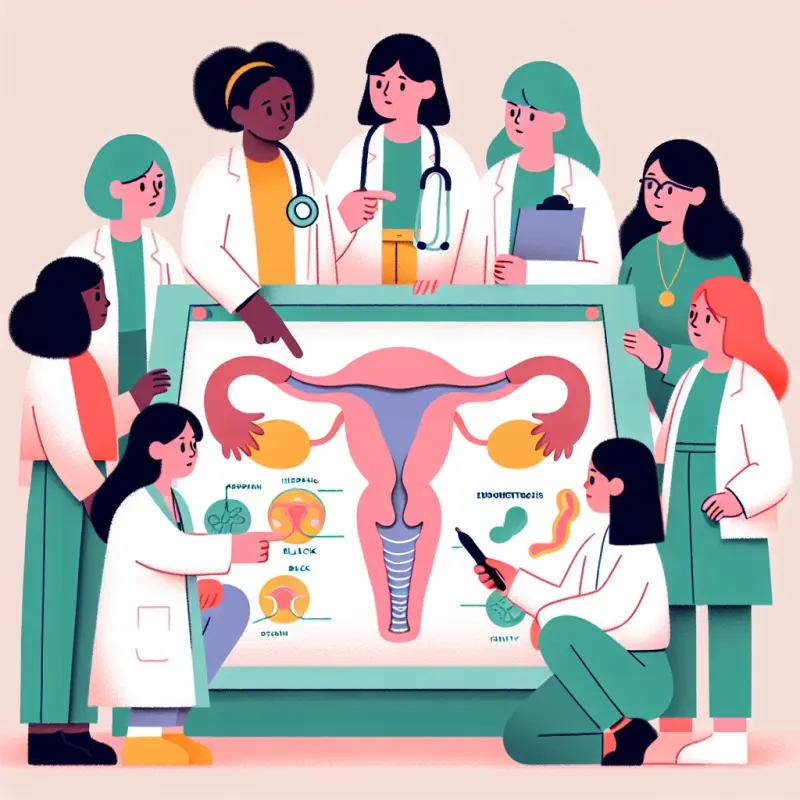Endometriosis and Fertility: Scientific Insights and Options
June 9, 2024

Endometriosis and Fertility: Scientific Insights and Options
Introduction
Endometriosis is a leading cause of infertility, affecting up to 50% of women who have difficulty conceiving. The relationship between endometriosis and fertility is complex, involving anatomical, hormonal, and immunological factors. This article explores the science behind endometriosis-related infertility and the options available for women who wish to become pregnant.
How Endometriosis Affects Fertility
Endometriosis can impact fertility in several ways:
- Anatomical Distortion: Endometrial lesions and adhesions can distort pelvic anatomy, blocking the fallopian tubes or impairing the release of eggs.
- Inflammation: Chronic inflammation in the pelvic cavity can damage eggs, sperm, and embryos, and interfere with implantation.
- Hormonal Imbalances: Endometriosis can disrupt normal hormone production, affecting ovulation and the menstrual cycle.
- Immune Dysfunction: Altered immune responses may attack sperm, eggs, or embryos, reducing the chances of conception.
Symptoms of Endometriosis-Related Infertility
- Difficulty getting pregnant after 6-12 months of trying
- Painful periods (dysmenorrhea)
- Pain during intercourse (dyspareunia)
- Chronic pelvic pain
- Irregular menstrual cycles
Diagnosing Endometriosis in Women with Infertility
- Medical History and Physical Exam: Assessment of symptoms and reproductive history.
- Imaging Tests: Ultrasound and MRI can identify ovarian cysts (endometriomas) and other abnormalities.
- Laparoscopy: The gold standard for diagnosing endometriosis and assessing its impact on fertility.
- Ovarian Reserve Testing: Blood tests (AMH, FSH, estradiol) and ultrasound to evaluate egg supply.
- Semen Analysis: To rule out male factor infertility.
Treatment Options for Endometriosis-Related Infertility
Lifestyle Modifications
- Diet: Anti-inflammatory diets may improve fertility outcomes.
- Exercise: Regular physical activity supports hormonal balance and overall health.
- Stress Reduction: Mindfulness, yoga, and counseling can help manage the emotional impact of infertility.
Medical Treatments
- Ovulation Induction: Medications like clomiphene citrate or letrozole stimulate ovulation.
- Intrauterine Insemination (IUI): Sperm is placed directly into the uterus to increase the chances of fertilization.
- In Vitro Fertilization (IVF): Eggs are fertilized outside the body and transferred to the uterus. IVF is often recommended for women with moderate to severe endometriosis or those who have not conceived with other treatments.
- Surgical Treatment: Laparoscopic removal of endometrial lesions and adhesions can improve fertility, especially in women with mild to moderate disease.
Advanced and Emerging Options
- Egg Freezing (Oocyte Cryopreservation): Preserves fertility for women who may need to delay pregnancy.
- Preimplantation Genetic Testing (PGT): Screens embryos for genetic abnormalities before transfer during IVF.
- Immunomodulatory Therapies: Experimental treatments targeting immune dysfunction in endometriosis.
- Stem Cell Therapy: An emerging area of research with potential future applications.
Coping with Infertility and Endometriosis
- Emotional Support: Counseling, support groups, and online communities can help manage the emotional toll of infertility.
- Partner Support: Open communication and shared decision-making are crucial.
- Education: Understanding the condition and available options empowers women to make informed choices.
Success Rates and Prognosis
- Success rates for fertility treatments vary depending on age, severity of endometriosis, and other factors.
- Early diagnosis and treatment improve the chances of conception.
- Many women with endometriosis go on to have healthy pregnancies, though some may require assisted reproductive technologies.
Conclusion
Endometriosis can present significant challenges to fertility, but advances in medical science offer hope and options. If you are struggling to conceive, consult a reproductive specialist for a thorough evaluation and personalized treatment plan.
Moone — Supporting you on your cycle journey.